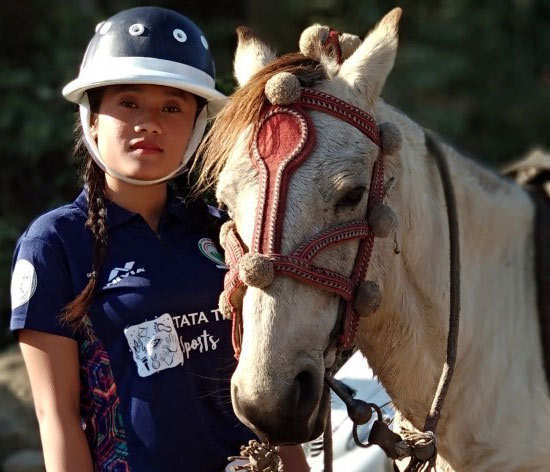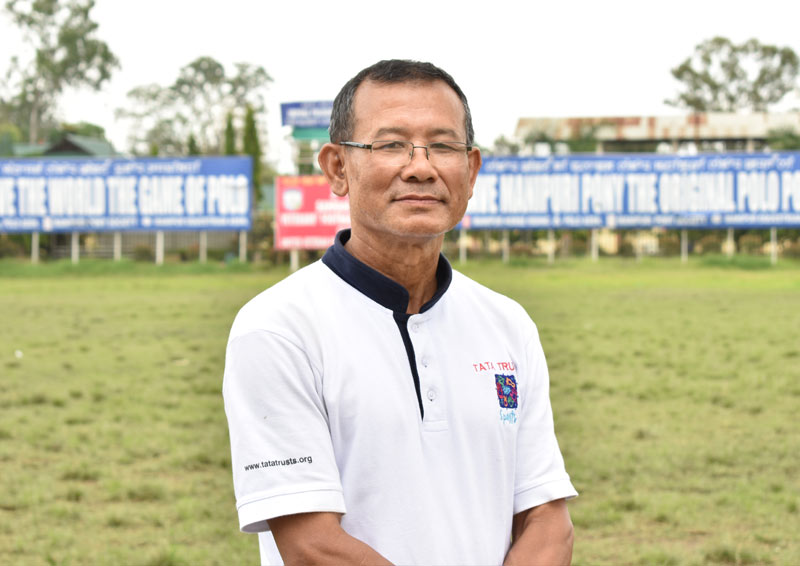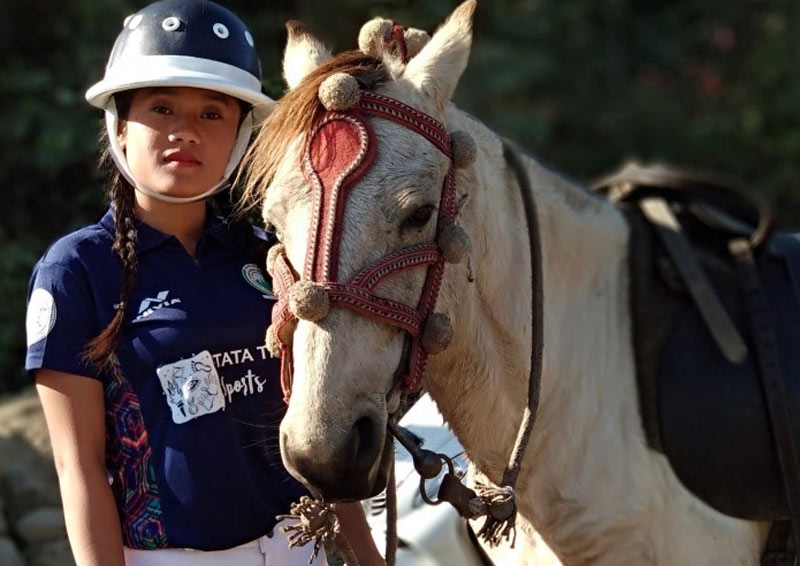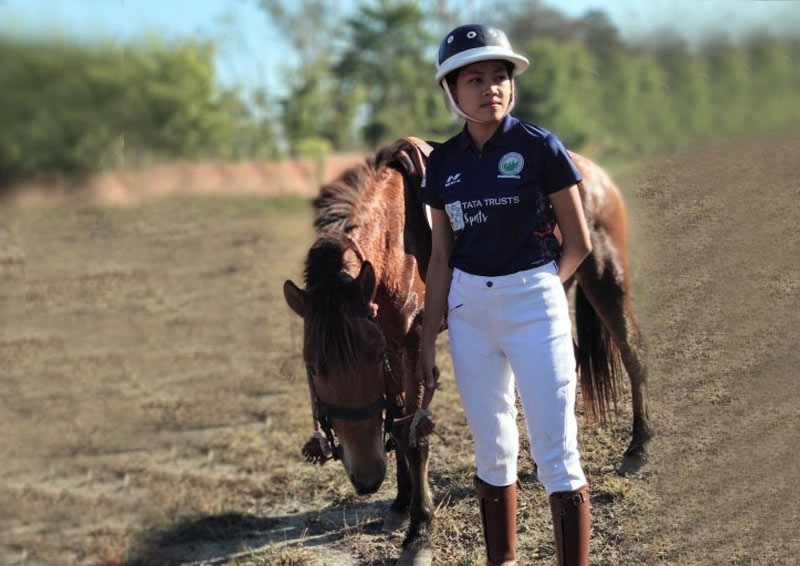
While ‘team sport’ automatically brings football to mind, polo is considered the world’s oldest team sport. In the mid-19th century, the sport was propagated and popularised by officers in the British army. Manipur, in north-eastern India, and its sister state Mizoram have long provided a pipeline of rising talent to the national football team. However, Manipur is not just a footballer’s striking ground; it is also considered to be the birthplace of modern polo.
In fact, the world’s oldest polo ground — Mapal Kangjeibung at Imphal — is in Manipur. “Polo is a unique sport which has been a part of Manipur’s history for a long time,” says Victoria Oinam, who was among the 21 young women selected from a batch of 37 to be part of a Tata Trusts’ supported unique programme, Grassroots Development of Women’s Polo in Manipur, which is focused on popularising this sport in this north-eastern hill state. “This programme is a wonderful way to restore the lost glory of Manipur’s polo culture, brick by brick, preserving it for posterity,” asserts Victoria.
Meeting the challenge
Unlike other parts of the country and the world, polo in Manipur was an egalitarian sport, traversing social class. Almost every family in Manipur owned a ‘Manipur pony’, long considered the world’s original polo pony. It is one of the five equine breeds in the country, and was never used as a work horse. Nearly two millennia after the first polo match is said to have been played, the baton has been passed onto women who played in their first tournament in 1992. Polo was beginning to redefine itself.
The All Manipur Polo Association’s efforts to preserve and revive Manipuri polo culture is supported by the Trusts. The Trusts’ programme involves master trainers who select young girls with aptitude and talent to be trained in the sport. The Trusts’ involvement means that these girls can now partake in a sport that they could otherwise not be able to afford.
“The training equipment that we have received — uniform, boots, saddle, bridle, stirrup leather, etc — are of top-notch quality,” says Neelu Rajkumari, another young woman who was selected for the programme. “Had it not been for this programme, these are well beyond what we could have purchased for ourselves.”
Training formation
Around 38 young women between the ages of 15 and 30 underwent trials in July 2018, under the watchful eyes of Maisnam Khelendro, an experienced veteran of the sport. Mr Khelendro is the former coach of the Manipur women’s polo team. The trials involved physical, medical and technical rounds, and finally, 21 candidates were selected for the three-year-long programme.
For the participants, this meant not just a break from academic life, it was a tool with which they could empower themselves. “The training, diet and discipline completely changed my life,” says Victoria, who’s confident that she also speaks for every other woman in the programme. Victoria’s family has always played polo and she was very glad to have gotten a chance to continue the tradition. Playing polo has also given Victoria a clarity regarding her own personality. “Experiencing horsemanship and learning to master the art has made me much more confident as a person, even when I’m not on a pony,” she explains. With this platform, the beneficiaries of the programme are regularly getting the chance to showcase their prowess on the saddle in international tournaments.
In only a few months, the women have made Manipur proud by representing the state in tournaments of international stature such as 4th Women’s Day International Polo Tournament. In other tournaments, such as the Governor’s Cup and Equestrian Cup, several of the players clinched medals in tent pegging and show jumping. This ensured them playing against top notch teams like Australia, the USA, Kenya, Canada, Argentina, etc.
The key tenets of the programme are to enable women to reclaim their space and to empower each other through the realm of the sport. The participants also take part in menstrual hygiene management workshops where they are introduced to new age techniques that help women who are involved in sports and other physical activity to minimise menstrual discomfort.
The ultimate goal of the programme and its trainers is to help Manipur become — once again — the powerhouse of the Indian polo circuit, and to ensure it climbs the international ladder to match the mettle of teams like the UK and the US — countries who, technically, picked up the sport from Indian, specifically, Manipuri polo players.



